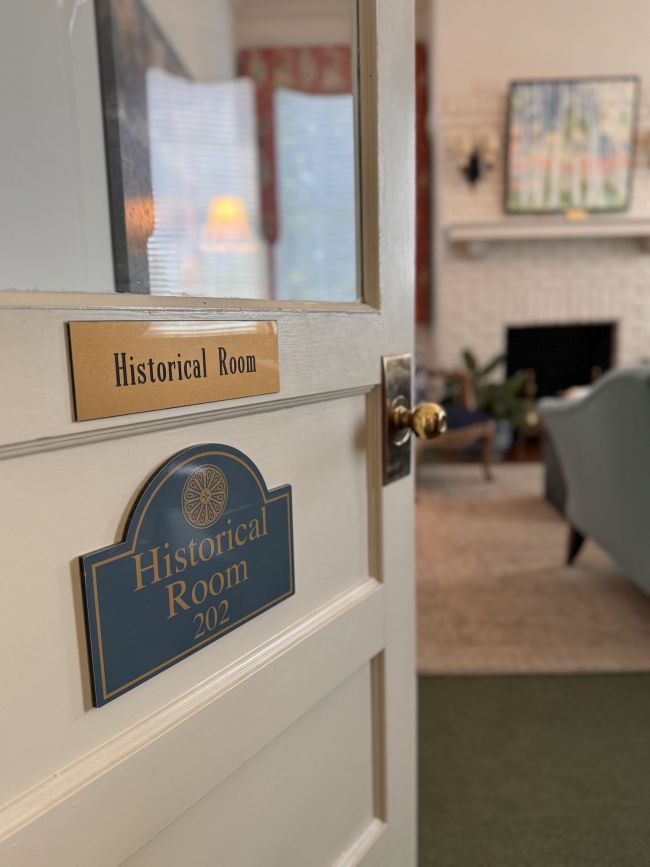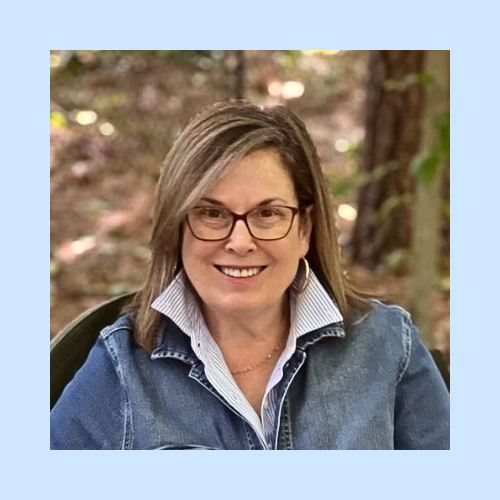When Rev. Lynda Ferguson became senior pastor at First United Methodist Church, Asheboro (FUMC) in 2014, she jumped right into the church’s 200-year-old history of serving the people of Asheboro, N.C.. As needs in the community came to her and the church’s attention, they responded by leveraging FUMC’s resources on behalf of others. FUMC now hosts a Monday night church service and free meal for those who don’t feel comfortable attending on Sundays, a weekly health care clinic for low-income, food- and housing-insecure individuals and families, a place where people can wash their clothes and shower as they receive basic health care, a homeless shelter for families, and FUMC partners with Keaton’s Place, a ministry that provides addiction resources and transportation to addiction centers. During the last two years they have also been developing a ministry that is unique among churches: clinical mental health counseling and care for the church and for the greater Asheboro community.
A few years after arriving at FUMC, Ferguson was drawn to the Historical Room—a room just inside the southern entrance to the church that served as the pastor’s office in the early 1900’s but by 2014 had become a storage room. “God kept speaking to me about this room, which was filled with historical artifacts," she said. "It was a storage room where we would put microphones after worship. It’s a prime room in the church, with easy access to an outside door and away from the rest of the activity in the church. The room seemed to me like a prime place for counseling to happen.”
Ferguson knows well the essential connection between spiritual and mental health. “Pastors often find themselves going over into the area of mental health, where they do not have expertise,” she said. When faced with this tension in the past, Ferguson had considered inviting other counseling services including those of the United Methodist denomination to offer their care within the FUMC building. Due to financial reasons, she said God kept nudging her to pursue “in-house” mental health care that would “open our doors to even more of the community, and maybe to part of the community that is different from the congregation.”
The first person she turned to with this hope was long-term FUMC congregant Dr. Robin Liles. Liles is a retired professor of counselor education and a licensed clinical mental health counselor-supervisor (LCMHCS). She is also a woman of deep faith who has long been interested in theology. Liles’ initial response to Ferguson was one of resistance: “Never in a million years would I do that—not because I didn’t like the idea, but because I was aware of the risk and responsibility related to clinical mental health counseling’s scope of practice. The idea of housing a counseling practice in church was brilliant, novel, and an extraordinary use of exceptional real estate. On the other hand, I understood what it would take to implement and maintain the plan properly and safely in order to reduce possible negative effects for the church, such as malpractice. I also understood that on the counseling side, this relationship could be deemed dubious. Though there is some evidence that this may be changing, there has long been a philosophical bifurcation between church and counseling.”
Having said her initial “no” to Ferguson, Liles followed a personal interest in theological study and enrolled in Duke Divinity School’s hybrid Certificate in Theology and Health Care (CTHC). The CTHC is a one-year program designed to give those working full-time in health care the chance to draw from the deep wells of scripture, theology, and Christian faith to learn to promote just, creative, and faithful practices of health care. During that year Liles said she found herself sitting “with medical doctors and nurses who were also trying to find ways to infuse theology, to infuse God into their practice. I saw them wrestling with the very uncertainties, the same reluctance I had. I was validated in the questions I was asking—what is the right and good thing to do? And if I were to do this—counseling in church—what is the right way to do it?”
It was during her time in the hybrid CTHC that Liles began to see how applicable Ferguson’s vision was. “The CTHC offered me a shared space to explore my own uncertainty about Lynda’s proposal, to feel validated in that uncertainty, to evaluate myself as a mental health professional, examine what I believed to be God’s call for me, and ultimately to decide what I wanted to do," she said. "It was through the CTHC that I found the language in my head to fit the space in my heart that Lynda was nudging on.”
Three months after completing the hybrid CTHC, Liles welcomed the first client to Wellness & Restoration in the pastor’s-office-turned-storage room that she had recently brought back to life as a counseling office. Wellness & Restoration offers counseling to people who otherwise can’t afford mental health care or to people who won’t get the help they need anywhere else. Most of the clients receiving care through this ministry are in dire need or are on the fringes of the Asheboro community or the FUMC congregation.
Talking with Liles and Ferguson about the shape of Wellness & Restoration reveals the intentional approach they’ve taken to its creation. “All of our paperwork is in order,” Liles said. “From the North Carolina Secretary of State, to the North Carolina Board of Licensed Clinical Mental Health Counselors, to the trustees and church council of this church, we’ve obtained the approval we need for this ministry. The model looks simple, and it is simple in a way, but setting the foundation has been time-consuming and comprehensive.”
In addition to the multi-layered approval process, Ferguson and Liles have established protocols for intake, assessment, and maintenance of counseling clients. Ferguson meets with people in need to gain an understanding of their situation and to determine whether their needs go beyond the scope of pastoral counseling. If mental health counseling is appropriate, Ferguson refers them to Liles, who assesses their clinical acuity. Wellness & Restoration is not equipped to manage highly complex cases such as individuals who are actively psychotic, suicidal, or in active addiction. In these instances, Liles provides assessment and gateway services, ensuring clients receive proper referrals and next-level care. But for others, once clients begin meeting with Liles, and for clinical and legal purposes, they become clients of Robin Liles Consulting PLLC.
Far from being a ministry that Liles leads on her own, FUMC has taken steps to ensure that mental health awareness and care is embedded in how the church functions. “If we are going to set ourselves up as a place that offers mental health care,” Liles said, “then gateway people need training.” In May 2024, all full-time staff at FUMC—people who are physically present at the building during the day and who answer the phones—received mental health first aid training, which equips people to be better first-responders to mental health needs. “The instincts of our staff are fantastic," said Liles, "but in order for this ministry to have integrity and a solid foundation, it is important for our staff to be trained in how to respond to potential crisis moments. We’re doing everything we can to be as well prepared as possible, and it lends the ministry a feeling of wholeness.”
At its one-year anniversary, Wellness & Restoration has seen to the care of nine clients and is giving those who attend FUMC the chance “to lean into who God has created them to be, to feel loved through that, and to know that care is available to them,” said Kathleen Gee, FUMC’s minister of parish life.
Ferguson’s pastoral ministry has been profoundly enriched during the first year of Wellness & Restoration, too. “In most of my ministry, I’ve had to step over from spiritual health into mental health on my own," she said. "I’ve never had a partner to walk in that space with me. I would refer to other mental health professionals, but I never had anyone to walk alongside me in that. Now I can call Robin to let her know something I’m dealing with, and she can advise me on next steps or I can refer to her.” When Ferguson does refer to Liles, she said, “it's not just that I hand people off to her and say ‘I’m done.’ It’s that I get to tell someone, ‘Here is another person who cares about you,’ and I stay involved. I get to focus on the spiritual side, and Dr. Liles gets to focus on the mental health side.”
As for Liles? The journey of moving through her initial resistance and into a growing counseling ministry at FUMC has been remarkable, she said. “I feel a lot of happiness in my soul, knowing God in this way."



